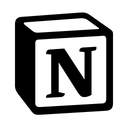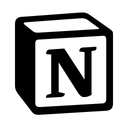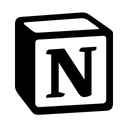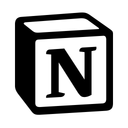Basecamp vs Notion (2025 Comparison)

Basecamp offers a simple and intuitive interface, making it easy for teams to get started quickly. With excellent customer support and robust security features, it's a reliable choice for project management.
- Simple and intuitive interface
- Excellent customer support
- Robust security features
- Limited customization options
- Fewer integrations available
Free plan?
YesStarting price
$15 per month per user
Notion provides highly customizable workspaces and extensive integration options, making it ideal for users who value flexibility. Its advanced collaboration features enhance productivity and creativity.
- Highly customizable workspaces
- Extensive integration options
- Advanced collaboration features
- Steep learning curve for new users
- Overwhelming customization options
Free plan?
YesStarting price
$10 per month per userWhat is Basecamp?
Basecamp is a project management and team collaboration tool designed to help teams stay organized and communicate effectively. It offers features like to-do lists, file sharing, and message boards, making it easier for teams to manage projects and tasks. Basecamp is particularly useful for remote teams, providing a centralized platform for all project-related activities. It helps users streamline their workflow, reduce email clutter, and keep everyone on the same page, ultimately enhancing productivity and efficiency.
What is Notion?
Notion is a versatile productivity tool that combines note-taking, task management, and collaboration features into one platform. It allows users to create customized workspaces with databases, calendars, and kanban boards, making it ideal for both personal and professional use. Notion's flexibility and adaptability make it a favorite among individuals and teams looking to organize their work and life in a single, cohesive environment. It helps users manage projects, track progress, and collaborate seamlessly, enhancing productivity and creativity.
Pros and Cons of Basecamp vs Notion

Pros & Cons of Basecamp
- Basecamp's interface is designed to be user-friendly, making it easy for teams to get started quickly. Its straightforward design ensures that even non-technical users can navigate the platform with ease.
- Basecamp provides reliable customer support through email and a comprehensive help center. Its support team is known for being responsive and helpful, ensuring that users receive the assistance they need.
- Basecamp prioritizes security with features like data encryption and regular backups, ensuring that user data is protected. This makes it a secure choice for teams that prioritize data protection.
- Basecamp offers limited customization options, focusing on simplicity and ease of use. This may be a drawback for users who prefer a more personalized experience.
- While Basecamp offers a range of integrations with popular tools, it has fewer options compared to other platforms. This may be a limitation for users who rely heavily on integrations.

Pros & Cons of Notion
- Notion allows users to create personalized workspaces with various templates and layouts. Its flexibility and adaptability make it a favorite among users who value customization.
- Notion offers an extensive API, allowing users to connect with a wide variety of third-party applications. This makes it a great choice for users who rely heavily on integrations to streamline their workflow.
- Notion provides advanced collaboration features, including real-time editing and commenting, allowing teams to work together seamlessly. This makes it ideal for users who need advanced collaboration capabilities.
- Notion's extensive features and customization options can be overwhelming for new users. It may take some time to fully understand and utilize its capabilities.
- While Notion's customization options are a strength, they can also be overwhelming for users who prefer a more straightforward experience. It may require some time to set up and organize workspaces.
Basecamp vs Notion: At A Glance
Value to Price
Basecamp offers a straightforward pricing model that provides excellent value for teams looking for a comprehensive project management solution. Its all-in-one approach eliminates the need for multiple tools, saving costs. Notion, on the other hand, offers a more flexible pricing structure, allowing users to pay for only the features they need. This makes Notion a better choice for those who want a customizable solution without paying for unnecessary features.
Ease of Use
Basecamp is known for its user-friendly interface, making it easy for teams to get started quickly. Its intuitive design ensures that even non-technical users can navigate the platform with ease. Notion, while also user-friendly, offers more customization options, which can be overwhelming for new users. However, for those who enjoy tailoring their workspace, Notion provides a more personalized experience.
Functionality
Basecamp provides essential project management features like task lists, file sharing, and team communication tools. It is ideal for teams looking for a simple yet effective solution. Notion, however, offers a broader range of functionalities, including databases, kanban boards, and note-taking capabilities. This makes Notion a better choice for users who need a versatile tool that can handle various tasks beyond project management.
Scalability
Basecamp is designed to support teams of all sizes, making it a scalable solution for growing businesses. Its robust infrastructure ensures that it can handle increased workloads without compromising performance. Notion, with its flexible structure, is also highly scalable, allowing users to expand their workspaces as their needs grow. This makes Notion a suitable choice for teams looking for a tool that can adapt to their changing requirements.
Integrations
Basecamp offers a range of integrations with popular tools like Slack, Google Drive, and Zapier, enhancing its functionality. However, Notion takes integrations to the next level with its extensive API, allowing users to connect with a wide variety of third-party applications. This makes Notion a better choice for users who rely heavily on integrations to streamline their workflow.
Customer Support
Basecamp provides reliable customer support through email and a comprehensive help center. Its support team is known for being responsive and helpful. Notion also offers excellent customer support, with a dedicated help center and community forums. However, Basecamp's support is slightly more accessible, making it a better choice for users who prioritize quick and efficient assistance.
Security
Basecamp prioritizes security with features like data encryption and regular backups, ensuring that user data is protected. Notion also offers robust security measures, including two-factor authentication and data encryption. Both tools provide a secure environment for users, but Basecamp's additional security features make it a slightly better choice for users who prioritize data protection.
Overall Rating
Basecamp is a solid choice for teams looking for a straightforward project management tool with excellent customer support and security features. Notion, with its versatile functionality and extensive integrations, is ideal for users who need a customizable and scalable solution. Ultimately, the choice between Basecamp and Notion depends on the user's specific needs and preferences.
Basecamp vs Notion: A Detailed Breakdown of Key Features
Task Management
Basecamp excels in task management with its simple to-do lists and task assignment features. It's perfect for teams that need a straightforward way to manage tasks. Notion, however, offers more advanced task management capabilities, including kanban boards and task dependencies. This makes Notion a better choice for users who need a more comprehensive task management solution.
Collaboration Tools
Basecamp provides excellent collaboration tools, including message boards and group chats, making it easy for teams to communicate. Notion takes collaboration to the next level with its real-time editing and commenting features, allowing teams to work together seamlessly. If you need advanced collaboration capabilities, Notion is the way to go.
Customization
Basecamp offers limited customization options, focusing on simplicity and ease of use. Notion, on the other hand, is highly customizable, allowing users to create personalized workspaces with various templates and layouts. If you value customization and flexibility, Notion is the better choice.
File Sharing
Basecamp makes file sharing easy with its drag-and-drop interface and centralized file storage. Notion also offers robust file sharing capabilities, with the added benefit of embedding files directly into documents. If you need advanced file sharing features, Notion is the better option.
Mobile Access
Basecamp offers a user-friendly mobile app that allows users to manage tasks and communicate on the go. Notion's mobile app is equally impressive, with a sleek design and full functionality. Both tools provide excellent mobile access, but Notion's app offers a more seamless experience.
User Interface
Basecamp's user interface is clean and intuitive, making it easy for users to navigate. Notion's interface is also user-friendly, with a modern design and customizable layout. If you prefer a more visually appealing interface, Notion is the better choice.
Pricing Comparison of Basecamp and Notion
We’ve compiled the pricing tables and highlighted the key features of both Basecamp and Notion to aid in your decision-making process. Let’s explore what each platform has to offer.

Basecamp Pricing Plans
- 500 GB storage for files and documents to keep everything organized.
- Month-to-month billing, pay as you go for flexibility.
- Invite guests for free, only pay for employees.
- No credit card required for a 30-day free trial.
- 10x file and document storage with 5 TB capacity.
- First-in-line 24/7/365 priority support for immediate assistance.
- Annual billing option for simplified accounting processes.
- Timesheet add-on to track time spent on projects.

Notion Pricing Plans
- Collaborate with friends, family & colleagues on your pages.
- Basic page analytics to track interactions.
- Restore your page to a previous version with 7-day history.
- Invite up to 10 guests to collaborate.
- Unlimited file uploads for seamless data management.
- 30-day page history for better version control.
- Invite up to 100 guests for broader collaboration.
- Custom websites with Google Analytics integration.
- Private teamspaces for sensitive information.
- Bulk PDF export for legal or compliance backups.
- Advanced page analytics for detailed insights.
- Invite up to 250 guests for extensive collaboration.
- Advanced security & controls for enhanced protection.
- Audit log for tracking security-related activities.
- Customer success manager for expert guidance.
- Unlimited page history for comprehensive version tracking.
Our Rating Methodology
We thoroughly test each project management tool, evaluating key features like ease of use, functionality, and scalability. We also analyze user reviews to ensure our recommendations fit your needs. Each of the seven evaluation factors is weighted by importance to provide an accurate final rating, helping you avoid poor-quality tools and make informed decisions.
Basecamp or Notion: Which One Matches Your Business Needs?
Choose Basecamp If You Need ...
- Simple and intuitive interface
If you are a beginner or small business owner looking for an easy-to-use project management tool, Basecamp is the ideal choice. Its straightforward design and user-friendly interface make it easy to get started quickly.
- Excellent customer support
If you value reliable and responsive customer support, Basecamp is the better option. Its support team is known for being helpful and efficient, ensuring that users receive the assistance they need.
Choose Notion If You Need ...
- Highly customizable workspaces
If you need a versatile and customizable productivity tool, Notion is the way to go. Its flexibility and adaptability make it ideal for users who value personalization and creativity.
- Advanced collaboration features
If you require advanced collaboration capabilities, Notion is the better choice. Its real-time editing and commenting features allow teams to work together seamlessly, enhancing productivity and creativity.
Frequently Asked Questions
 Which tool is better for project management, Basecamp or Notion?
Which tool is better for project management, Basecamp or Notion?
 How do Basecamp and Notion compare in terms of customization?
How do Basecamp and Notion compare in terms of customization?
 Which tool offers better collaboration features, Basecamp or Notion?
Which tool offers better collaboration features, Basecamp or Notion?
 How do Basecamp and Notion compare in terms of integrations?
How do Basecamp and Notion compare in terms of integrations?
 Which tool is more secure, Basecamp or Notion?
Which tool is more secure, Basecamp or Notion?
 How do Basecamp and Notion compare in terms of pricing?
How do Basecamp and Notion compare in terms of pricing?

Anastasia Belyh
Anastasia Belyh is a senior tech writer with over 15 years of experience in marketing, sales, and business software. Having worked in investment banking, management consulting, and founded multiple companies, her in-depth knowledge and hands-on expertise make her software reviews authoritative, trustworthy, and highly practical for business decision-makers.



